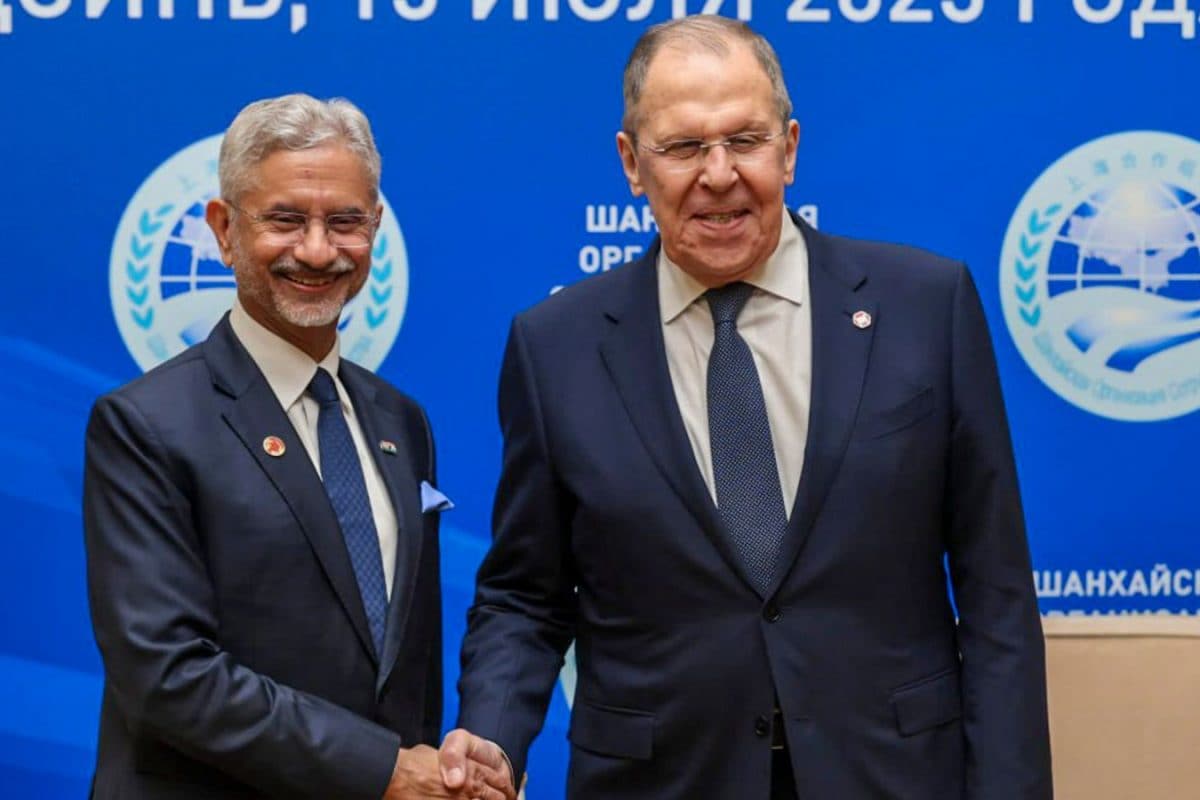Indian diplomat to discuss Ukraine crisis, energy exports with Russian officials
National NationalPosted by AI on 2025-08-13 12:32:33 | Last Updated by AI on 2025-08-15 17:08:11
Share: Facebook | Twitter | Whatsapp | Linkedin Visits: 2

Indian Foreign Secretary Vinay Mohan Kwatra's visit to Moscow is taken as a sign of New Delhi's willingness to engage with Russia. However, India is walking a tightrope with its efforts to boost food and energy security intricately linked to its relationship with Russia, while also trying to maintain its strategic autonomy in the face of Western pressure.
Indian Foreign Secretary Vinay Mohan Kwatra's upcoming visit to Russia from July 28 to 29 has been confirmed by the Russian Foreign Ministry. This comes shortly after Indian External Affairs Minister S Jaishankar's trip to Russia, from August 18 to 21, during which he will meet with Russian Foreign Minister Sergey Lavrov in Moscow. These high-level diplomatic exchanges are significant given the war in Ukraine and Russia's strained relations with the West.
According to sources, Jaishankar's meetings in Moscow will potentially include top Russian officials as well as deputy prime minister Dennis Manturov. Discussing the Ukraine crisis and its implications for regional and global stability are likely at the top of the agenda.
The significance of these visits is augmented by the fact that India is a significant market for Russian energy exports, with Russia being India's second-largest supplier of crude oil. Even though India has not publicly criticized Russia's invasion of Ukraine, it has been maintaining a neutral stance and has refrained from adopting any sanctions against Moscow.
The visit also comes as India is trying to boost its food security by increasing domestic production and importing grains from trusted sources. Since Russia is one of the world's largest grain exporters, the potential for mutually beneficial arrangements cannot be overlooked.
While India is increasingly diversifying its arms imports and reducing its dependence on Russian weapons, Moscow remains a crucial partner for New Delhi in this sector. The latest visits suggest that, despite pressure from the US and its allies, India is determined to maintain its strategic autonomy and continue its multi-faceted relationship with Russia.
With many global powers vying for influence in India, this could be an opportunity for Moscow to strengthen its foothold in one of the world's most populous countries.
Conclusion: Despite the war in Ukraine and global tensions, India's top diplomats are continuing to cultivate their country's relationship with Russia. Talks between Vinay Mohan Kwatra and S Jaishankar with Russian officials may boost food and energy security while preserving India's strategic autonomy. This diplomacy walks a tightrope between managerial ties and geopolitical tensions.
Search
Categories
- Sports
- Business
- History
- Politics
- International
- Science & Technology
- Social Issues
- Disaster Management
- Current Affairs
- Education
- Startup Business
- Startup News
- Awards
- Community Services
- Fundraising Events
- Volunteer Services
- Health Initiatives
- Innovations and Initiatives
- In News
- dummybanners
- Awards
- Partners
- Products
- Press Releases
- News
- Fast Check
- South
- సినిమా
- Gallery
- Sunday Chronicle
- Hyderabad Chronicle
- లైఫ్ స్టైల్
- National
- క్రైం
- ట్రెండింగ్
- జాబ్స్
- అంతర్జాతీయo
- బిజినెస్
- రాజకీయం
- బిజినెస్
- సంపాదకీయం
- నవ్య
- చిత్ర జ్యోతి
- క్రీడలు
- జాతీయం
- తెలంగాణ
- తాజా వార్తలు
- మన పార్టీ
- మన నాయకత్వం
- మన విజయాలు
- డౌన్లోడ్స్
- మీడియా వనరులు
- కార్యకర్తలు
- North East Skill Center News
- Government Schemes
- Entrepreneurship Support
- Employment Opportunities
- Skill Training Programs
- Departments
- Investments
- Initiatives
- Resources
- Telangana IT Parks
- Events & Jobs
- Press Releases
- News
- Airport News
- Newtons Laws of Motion
- Karbonn in Business
- Investments in Karbonn
- Company quarterly sales
- Markets
- Auto News
- Industry
- Money
- Advertisements
- Stock target
- Company Updates
- Stock Market
- Company Sales
- Staffing and HR
- Constituency Assembly
- General News
- Srikalahasti Temple
- Bojjala Sudhir Reddy
- Technology & Innovation
- Sports
- Business
- Products
- Industries
- Services & Trainings
- Tools & Resources
- Technology Integration
- Drug Seizures & Arrests
- Telangana Narcotics
- Law & Enforcement
- Rehabilitation
- Nationwide Drug Policing
- Nigeria Seizures
- Global Operations
- Drug Awareness
- Drug Enforcement Tech
- NCB Drug Seizures
- Judicial Crackdown
- India's Surveillance Tools
- Cross-Border Links
- Women Safety
- Cyber Crimes
- Drug Abuse
- Traffic & Road Safety
- Community Connect
- Public Safety Alerts
- Citizen Assistance
- Nellore City News
- Politics & Administration
- Events & Festivals
- Agriculture & Rural
- Business & Economy
- Health & Wellness
Recent News
- Nagaland Governor La Ganesan Passes Away In Chennai At 80
- Jacob Bethell Poised To Make History As Youngest Men's Cricket Captain
- Top cop's transfer verdict ignites political furor in Kerala
- Tax reform: Common items to get cheaper, as GST rate slashed from 12% and 28%
- Sanju Samson Trade: KKR Offer Young Indian Players In Exchange To Rajasthan Royals
- Markram Explains Rationale Behind Opening: 'Got Some Guys In The Middle...'
- Mondo Duplantis' Hilarious Inquiry About Kenny Bednarek Leaves News Conference In Stitches
- Mikel Arteta Asked Arsenal Players To Vote And Pick New Captain: 'Everybody Chose...'